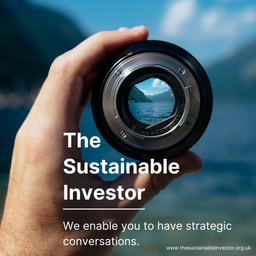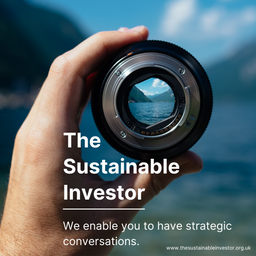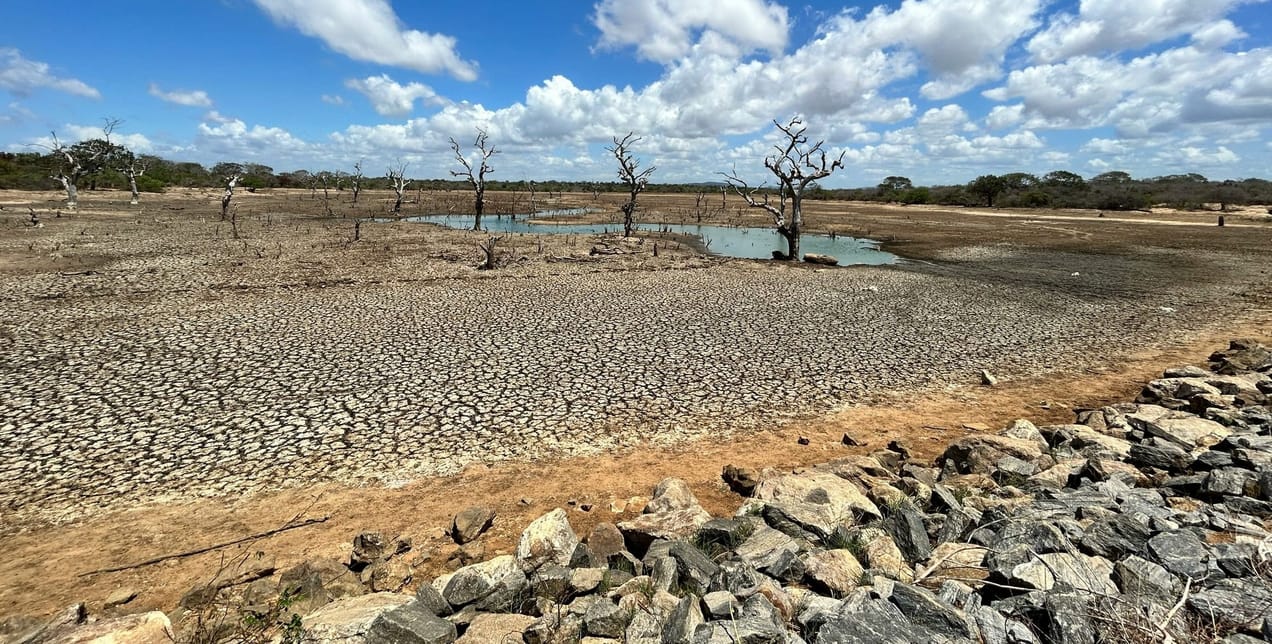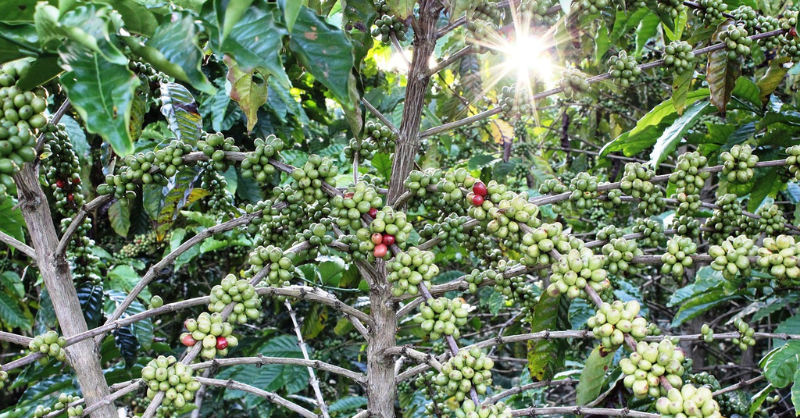
Food companies, sustainability and financial risk
Climate change is going to alter what can be grown where, and the yields that farmers can deliver. This is very likely to lead to higher prices. And yet current financial reporting by companies in the agricultural value chain doesn't really talk about this. This needs to change.
"Coffee proved to be the most vulnerable, with negative climate impacts dominating in all main producing regions" Gruter et al in Expected global suitability of coffee, cashew and avocado due to climate change
The rising price of our cup of coffee has been in the news, including a recent long article in the FT. But it's not just coffee. Other agricultural products also face climate change related risks. Despite this we don't seem to talk enough about the potential long term financial implications for the companies in our food supply chain, from farmers, through food manufacturers, to food retailers (supermarkets).
The assumption seems to be that rising prices will just be passed on to the consumer (or maybe that the price rise is just a blip?)
But we know that this is unlikely. Economics 101 tells us that as prices rise, demand falls. It might take some time, but consumers eventually cut consumption. This can create potential financial risks for those companies that have a material exposure to the commodity.
The good news is that there are actions that these companies can take to mitigate the risk. The bad news is these actions will require investment, and soon. Many agricultural products (such as coffee plantations) have what we call long asset lives. And so decisions made now will have long term implications.
This is not an 'abstract' ESG issue. Investors need to understand the long term financial implications of climate change on raw material supply and hence pricing. And they need to know the mitigation and adaption actions that companies are taking, the investments they are making, and what it will mean for the long term sustainability (and profitability) of some key product ranges.
Some companies are making good disclosures on the actions they are taking. But at present these are mainly from a sustainability reporting perspective. If we are to understand the implications for our investments, we need this to be linked to financial reporting and company strategy.
Plus, not all companies are making the same level of disclosures as the sector leaders. To persuade them to step up we need a better understanding of the link between climate change and raw material costs and supply levels - and the impact on financial performance. It's in everyone's best interest !
Coffee is vulnerable to climate change impacts
Global agriculture is heading for a challenging period. Climate change is widely expected to impact what can be grown where, and the yields farmers can deliver. Plus agriculture is very directly exposed to high (and volatile) fossil fuel prices. Together these could lead to higher for longer food prices.
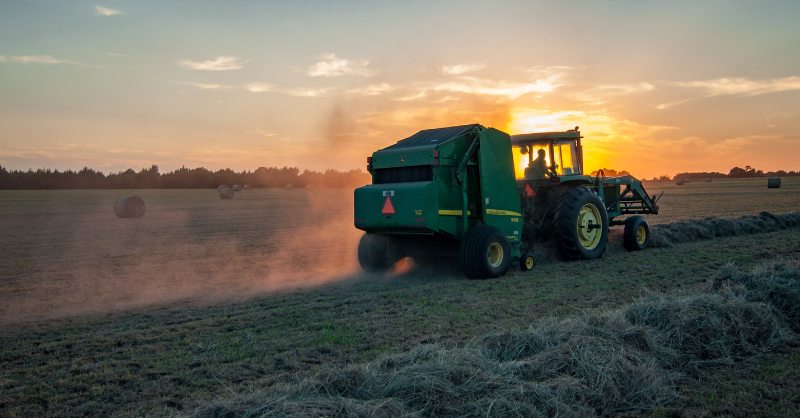
For this blog I picked coffee as it very neatly encapsulates many of the challenges faced, but it could equally have been about other key commodities.
According to a 2024 blog from the Energy & Climate Intelligence Unit "97% of all coffee globally is grown in countries vulnerable to climate impacts"

This analysis is broadly consistent with research such as that from Gruter et al (2022) and Bilen et al (also 2022), both of which highlight how climate change is the most pressing issue for the industry, with reductions expected in worldwide yields and coffee-suitable land by 2050.
In the absence of action, it's reasonable to expect that coffee prices will continue to rise. What might that mean for companies exposed to coffee, and what actions could they take to mitigate the impacts (or even turn a financial risk into a financial opportunity)?
At an industry level coffee seems to have a relatively low price elasticity (this means that a 1% price rise leads to only a small fall in consumption by volume - at least in the short term). A 2022 Euromonitor article suggested that coffee's 1 year price elasticity is around 0.24, which is fairly low. As they put it this means that even when the price rises "consumers are highly reluctant to cut back in volume terms". This makes sense as coffee is seen by many to be an 'affordable luxury'. The flip side is that if the price rise is sustained we can see trading down to cheaper products (either lower quality, or at home vs ready to drink from a coffee shop).
What else do we know? Companies such as Nestle (one of those with better disclosure) reported that under their intermediate climate scenario (2 to 3 degrees of warming by 2100) robusta coffee yields would reduce by >2% (by 2040) in Brazil. But under the same scenario yields in Indonesia could rise. And the impact on arabica yields would be minimal. This data can be found in chart form on page 11 of their 2023 Creating Shared Value Sustainability report.
This suggests a possible disconnect between what the industry is saying, and what Nestle believes? Or maybe yield is the wrong measurement? Either way we are not sure what to make of this analysis from a financial perspective.
In the same report they also set out in some detail the extensive work they are doing to make their supply chains more robust and sustainable, including extensive investments in regeneration agriculture. Again great things for a company to be doing, but how do we link this to the long term growth and profitability perspectives of their coffee operations?
Don't get me wrong. This is all useful information. But not enough for us to decide if Nestle is doing enough to make their coffee operations financially sustainable.
Maybe the data is available elsewhere? Maybe the risk section in the companies annual review and the notes to the accounts will give further analysis? Sadly not really. How about the recent capital markets day coffee presentation? Again not really. They highlighted challenging (ie much higher) green coffee prices, tensions on supply chains, and their proactive pricing. But little detail on how their mitigation measures might help to manage these challenges from a financial perspective.
To be clear. Nestle is doing a good job of meeting existing reporting standards, both financial and sustainability. The challenge is that the disclosure we want, linking sustainability, finance and strategy, is a new requirement. It sometimes feels as if we have three separate sets of disclosure (sustainability, accounting reporting, and strategy), all developed for different audiences. And so far they are not 'joined up'.
This is not about criticising companies for poor disclosure. It's instead about starting a dialogue (engagement) that will help companies disclose the information asset managers and owners need to make better investment decisions. Which should benefit everyone in the investment value chain, from the companies who want higher share prices, through the asset managers who want companies to surprise on the upside, to asset owners who want better returns for their stakeholders and the wider society.
One last thought
When we think about making coffee production more sustainable, and more resilient to the impacts of climate change, we also need to think about the farmers. Many coffee growers struggle financially. Close to 60% of global coffee production comes from farms of less than 5 hectares, often in remote areas. According to Enveritas, as of 2019, 44% of the world's smallholder coffee farmers are living in poverty and 22% are living in extreme poverty..
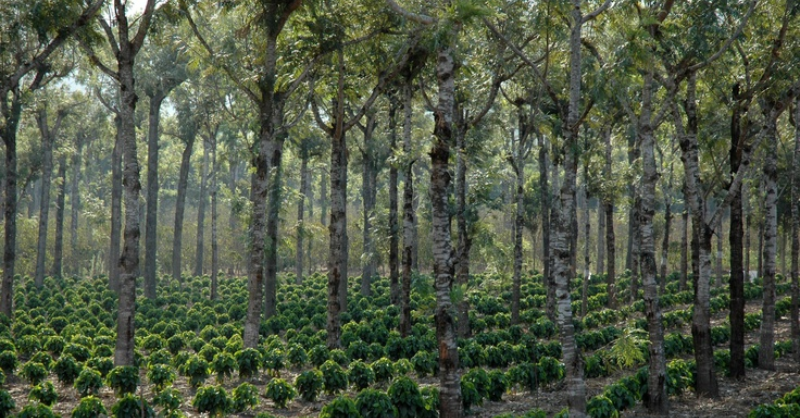
Please read: important legal stuff.
